In the face of increasingly sophisticated and frequent cyberattacks, businesses must remain proactive in their security efforts. New Zealand has taken a significant step towards bolstering its cyber defenses by merging CERT NZ with the National Cyber Security Centre (NCSC). Now the country’s lead operational cyber security agency, the NCSC operates under the Government Communications Security Bureau and offers a full spectrum of cyber security services to all New Zealanders.
This encompasses everyone from individuals and small businesses to government bodies and critical national organizations, highlighting the nation’s commitment to comprehensive cyber protection.
The latest Cyber Security Insights Report from CERT NZ provides key insights into the state of cyber threats in New Zealand for Q2 2024.
Having a robust security infrastructure in place is the best way to protect yourself from cyber-attacks.
Key Findings in 2024 Q2 CERT NZ’s Cyber Security Report
In the past quarter, the NCSC addressed 1,203 incident reports from individuals and businesses across New Zealand, which has decreased from Q1, and an additional 121 incidents with potential national significance. The Cyber Security Insights report provides detailed information about these incidents and showcases the NCSC’s ongoing efforts to enhance cyber security.
Download the PDF here.
Q2 Data Highlights
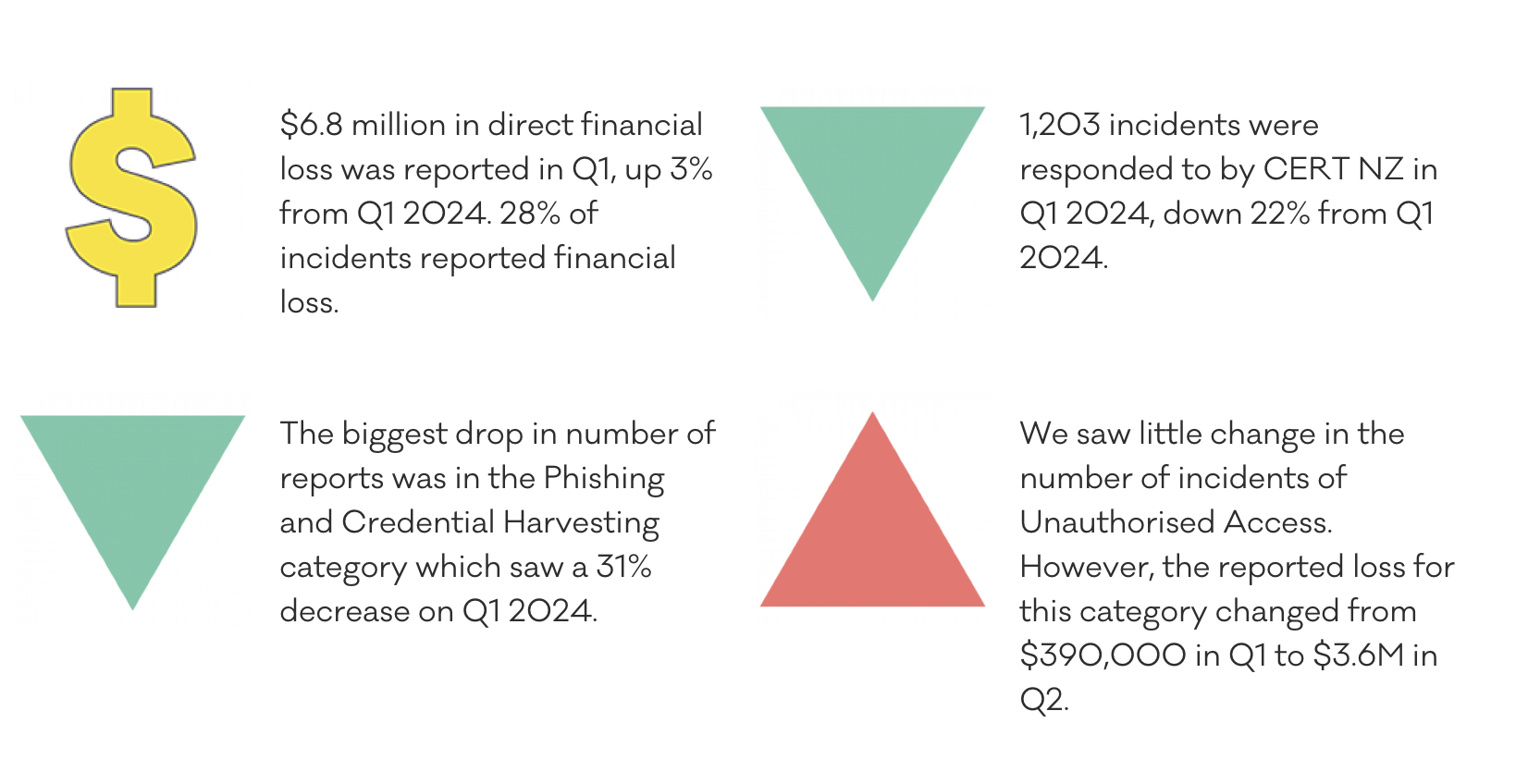
Number of Incidents
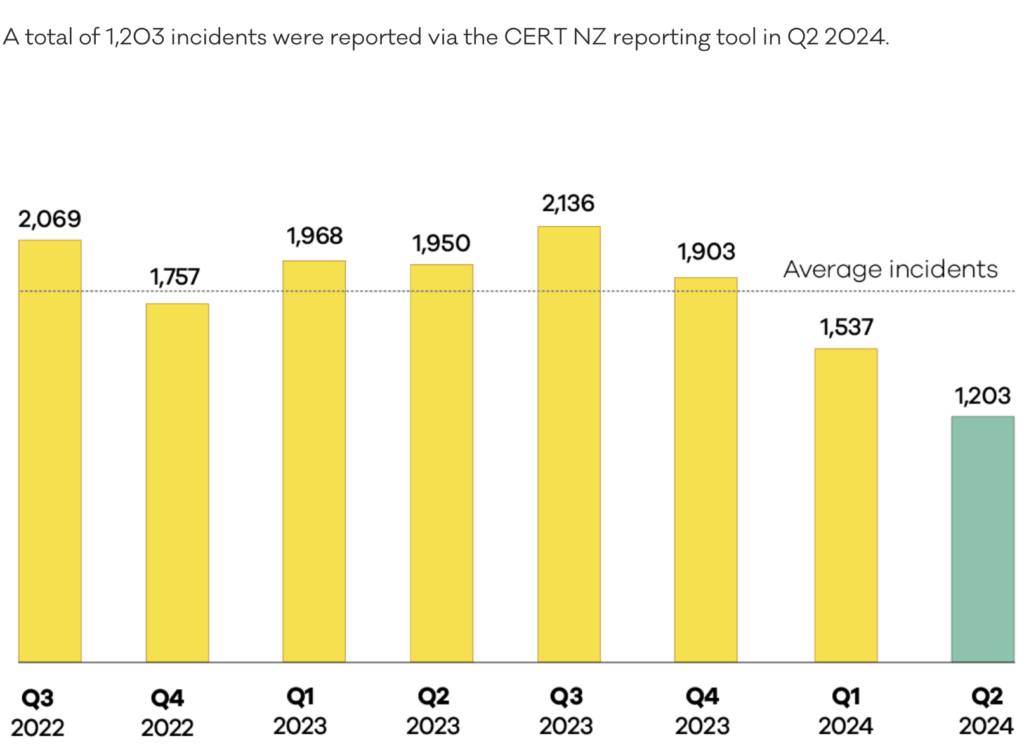
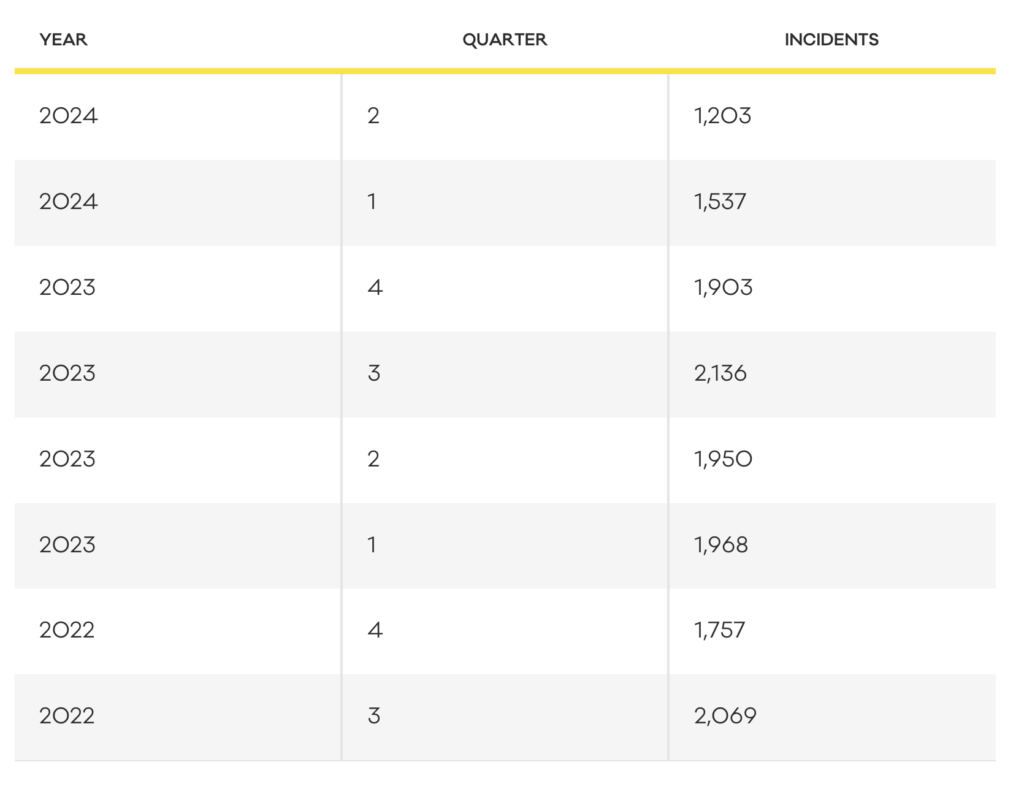
Breakdown by Incident Category
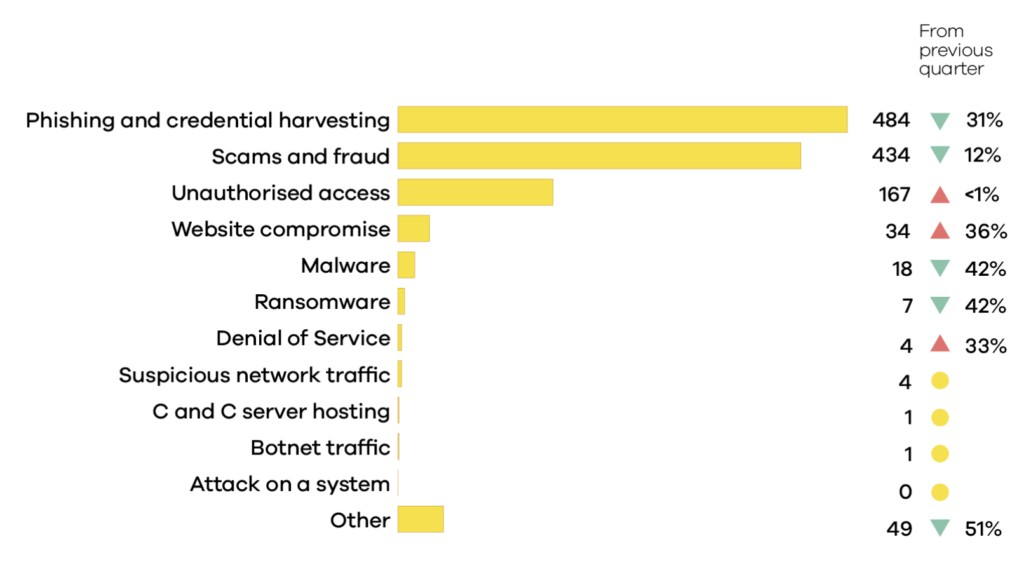
Phishing and credential harvesting remains the most reported incident category in Q2 2024 despite a 31% drop in the number of reports.
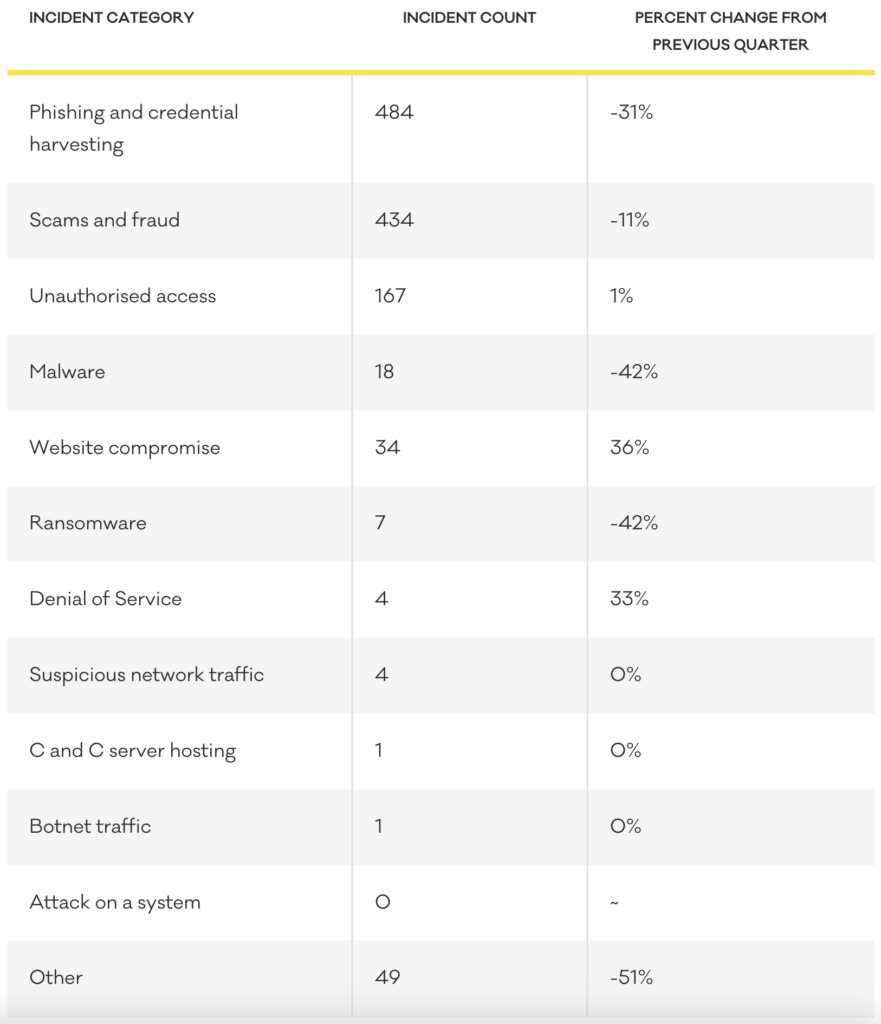
Protecting New Zealand from Phishing with the Phishing Disruption Service
The NCSC’s Phishing Disruption Service (PDS) is a vital free tool that combats phishing attacks in New Zealand. It provides a reliable list of verified phishing indicators specific to New Zealand, enabling organizations to take proactive steps to block these threats within their networks.
When you receive a suspicious link via text or email, forward it to phishpond@ops.cert.govt.nz. The NCSC’s incident response team then analyzes these phishing indicators and publishes verified ones to the PDS, making them available for organizations to proactively block. Furthermore, the NCSC’s research team actively identifies and blocks phishing sites before they can target New Zealanders.
In the second quarter of 2024, the NCSC processed an impressive 11,278 phishing indicators and published 2,059 of them to the PDS. Additionally, 325 phishing indicators were proactively identified and blocked. Postal agencies were the most frequently impersonated industry by phishing scammers during this quarter.
Addressing Incidents of Potential National Significance
The NCSC plays a crucial role in responding to incidents that affect nationally significant organizations or have the potential to cause harm at a national level. These incidents are triaged based on their severity and the organizational impact.
In the second quarter of 2024, the NCSC documented 121 incidents impacting nationally significant organizations. The majority of these were classified as minor or routine incidents, with 28 triaged as C6 (minor) and 55 as C5 (routine). However, there were also 36 moderate incidents (C4) and 2 significant incidents (C3). Fortunately, there were no reports of highly significant incidents (C2) or a national cyber emergency (C1).

How Kiwi Businesses Can Protect Themselves from Growing Cyber Threats
There are a lot of simple, yet effective ways that Kiwi businesses can protect themselves from cyber security threats. By staying vigilant and having the right measures in place, a business can dramatically reduce their risk of falling victim to these malicious attacks. Below are some of the cyber security tips you can implement right away:
- Multi Factor Authentication (MFA) – As the name implies, MFA is a multi-step authentication process that requires users to provide two or more pieces of evidence when logging into an account, such as a password and a code sent via text message or email, making it harder for hackers to access accounts without permission
- Application Allowlisting – allowlisting is a type of software restriction policy which limits the execution of applications based on their digital signature or other identifying characteristics like file name, pathname, publisher etc., preventing malicious programs from running on computers
- Regular Backups – having regular backups can help you recover quickly if your system gets attacked by ransomware; employ 3-2-1 backup system where you have three copies stored in two different locations with one copy offsite so that you don’t lose your data
- Create an Incident Response Plan – having a plan in place to respond to cyber security threats can help you protect your business from any future incidents; this plan should include the roles and responsibilities of employees, contact information for third-party vendors and other relevant stakeholders, as well as step-by-step procedures for responding to threats
By implementing these tips, Kiwi businesses can be better protected against cyber security threats and reduce the risk of a data breach. Additionally, it’s important to have frequent employee training and awareness programs so everyone is aware of the risks associated with cyber security threats. By doing this you can ensure that your business is secure and safe.
Need Help Improving Your Cyber Security?
Cyber security threats are a growing concern and Kiwi businesses need to be aware of the potential risks these threats can pose. Remember that by implementing the right measures, they can help protect their business against cyber criminals and keep their important data safe and secure.
If you need help improving your organisation’s security posture, or are simply unsure of the best steps to take, don’t hesitate to reach out to our team. iT360 can provide guidance, perform security audits and even develop custom solutions to cater specifically to your organisation’s needs. Contact us today to learn more about our cyber security services!


